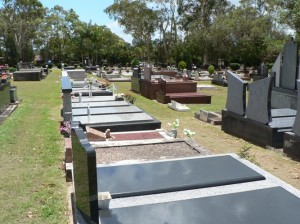Articles
-
A Recollection on Death
A Recollection on Death
 Life is unpredictable and uncertain in this world. Life here is difficult, short and bound up with suffering. A being, once born, is going to die, and there is no way out of this. When old age arrives, or some other cause, then there is death. This is the way it is with living beings.
Life is unpredictable and uncertain in this world. Life here is difficult, short and bound up with suffering. A being, once born, is going to die, and there is no way out of this. When old age arrives, or some other cause, then there is death. This is the way it is with living beings.
When fruits become ripe, they may fall in the early morning. In just the same way a being, once born, may die at any moment. Just as the clay pots made by the potter tend to end up being shattered, so is it with the life of mortals.
Both the young and the old, whether they are foolish or wise, are going to be trapped by death. All beings move towards death. They are overcome by death. They go to the other world. And then not even a father can save his son, or a family their relatives. Look: while relatives are watching, tearful and groaning, men are carried off one by one, like cattle being led to the slaughter. So death and ageing are endemic to the world. Therefore, the wise do not grieve seeing the nature of the world.
You cannot know his path as to where he has come from, or where he is going to. So it makes no sense to grieve for him. The man who grieves gains nothing. He is doing no more than a foolish man who is trying to hurt himself. If a wise man does it, it is the same for him.
Peace of mind cannot come from weeping and wailing. On the contrary, it will lead to more suffering and greater pain. The mourner will become pale and thin. He is doing violence to himself, and still he cannot keep the dead alive; his mourning is pointless. The man who cannot leave his sorrow behind him only travels further into pain. His mourning makes him a slave to sorrow.
Look at beings who are facing death, who are living out the results of their previous deeds; people are terrified when they see that they are trapped by death. What people expect to happen is always different from what actually happens. From this comes great disappointment; this is the way the world works.
A man may live for a hundred years, or even more, but in the end he is separated from his relatives, and he too leaves life in this world. So we can listen and learn from the noble man as he gives up his grief. When he sees that someone has passed away and lived out their life, he says “he will not be seen by me again”.
When a house is burning, the fire is put out by water. In the same way the wise man, skilful, learned and self-reliant, extinguishes sorrow as soon as it arises in him. It is like the wind blowing away a tuft of cotton. The person who is searching for his own happiness should pull out the dart that he has stuck in himself, the arrow-head of grieving, of desiring, of despair.
The man who has taken out the dart, who has no clinging, who has obtained peace of mind, passed beyond all grief, this man, free from grief, is still.
Source: http://patacarabhikkhunihermitage.wordpress.com/2013/06/12/vesak-meditation-retreat-2013/ This recollection is connected with The Salla Sutta – The Dart. Used with kind permission from Ayya Seri Bhikkhuni.
- For a PDF copy, click on A Recollection on Death – Salla Sutta.
- For an MS Word copy, click on A Recollection on Death – Salla Sutta.
Five Subjects for Contemplation
 “There are these five facts that one should reflect on often, whether one is a woman or a man, lay or ordained. Which five?
“There are these five facts that one should reflect on often, whether one is a woman or a man, lay or ordained. Which five?
(1) ‘I am subject to aging, have not gone beyond aging.’ This is the first fact that one should reflect on often, whether one is a woman or a man, lay or ordained.
(2) ‘I am subject to illness, have not gone beyond illness.’ …
(3) ‘I am subject to death, have not gone beyond death.’ …
(4) ‘I will grow different, separate from all that is dear and appealing to me.’ …
(5) ‘I am the owner of my actions (kamma), heir to my actions, born of my actions, related through my actions, and have my actions as my arbitrator. Whatever I do, for good or for evil, to that will I fall heir.’ …
“These are the five facts that one should reflect on often, whether one is a woman or a man, lay or ordained.
“Now, based on what line of reasoning should one often reflect… that ‘I am subject to aging, have not gone beyond aging’? There are beings who are intoxicated with a [typical] youth’s intoxication with youth. Because of that intoxication with youth, they conduct themselves in a bad way in body… in speech… and in mind. But when they often reflect on that fact, that youth’s intoxication with youth will either be entirely abandoned or grow weaker…
“Now, based on what line of reasoning should one often reflect… that ‘I am subject to illness, have not gone beyond illness’? There are beings who are intoxicated with a [typical] healthy person’s intoxication with health. Because of that intoxication with health, they conduct themselves in a bad way in body… in speech… and in mind. But when they often reflect on that fact, that healthy person’s intoxication with health will either be entirely abandoned or grow weaker…
“Now, based on what line of reasoning should one often reflect… that ‘I am subject to death, have not gone beyond death’? There are beings who are intoxicated with a [typical] living person’s intoxication with life. Because of that intoxication with life, they conduct themselves in a bad way in body… in speech… and in mind. But when they often reflect on that fact, that living person’s intoxication with life will either be entirely abandoned or grow weaker…
“Now, based on what line of reasoning should one often reflect… that ‘I will grow different, separate from all that is dear and appealing to me’? There are beings who feel desire and passion for the things they find dear and appealing. Because of that passion, they conduct themselves in a bad way in body… in speech… and in mind. But when they often reflect on that fact, that desire and passion for the things they find dear and appealing will either be entirely abandoned or grow weaker…
“Now, based on what line of reasoning should one often reflect… that ‘I am the owner of my actions, heir to my actions, born of my actions, related through my actions, and have my actions as my arbitrator. Whatever I do, for good or for evil, to that will I fall heir’? There are beings who conduct themselves in a bad way in body… in speech… and in mind. But when they often reflect on that fact, that bad conduct in body, speech, and mind will either be entirely abandoned or grow weaker…
“Now, a disciple of the noble ones considers this: ‘I am not the only one subject to aging, who has not gone beyond aging. To the extent that there are beings — past and future, passing away and re-arising — all beings are subject to aging, have not gone beyond aging.’ When he/she often reflects on this, the [factors of the] path take birth. He/she sticks with that path, develops it, cultivates it. As he/she sticks with that path, develops it and cultivates it, the fetters are abandoned, the obsessions destroyed.
“Further, a disciple of the noble ones considers this: ‘I am not the only one subject to illness, who has not gone beyond illness.’… ‘I am not the only one subject to death, who has not gone beyond death.’… ‘I am not the only one who will grow different, separate from all that is dear and appealing to me.’…
“A disciple of the noble ones considers this: ‘I am not the only one who is owner of my actions, heir to my actions, born of my actions, related through my actions, and have my actions as my arbitrator; who — whatever I do, for good or for evil, to that will I fall heir. To the extent that there are beings — past and future, passing away and re-arising — all beings are the owner of their actions, heir to their actions, born of their actions, related through their actions, and have their actions as their arbitrator. Whatever they do, for good or for evil, to that will they fall heir.’ When he/she often reflects on this, the [factors of the] path take birth. He/she sticks with that path, develops it, cultivates it. As he/she sticks with that path, develops it and cultivates it, the fetters are abandoned, the obsessions destroyed.”
Subject to birth, subject to aging,
subject to death,
run-of-the-mill people
are repelled by those who suffer
from that to which they are subject.
And if I were to be repelled
by beings subject to these things,
it would not be fitting for me,
living as they do.
As I maintained this attitude —
knowing the Dhamma
without paraphernalia —
I overcame all intoxication
with health, youth, and life
as one who sees
renunciation as rest.
For me, energy arose,
unbinding was clearly seen.
There’s now no way
I could partake of sensual pleasures.
Having followed the holy life,
I will not return.
©1997 Thanissaro Bhikkhu.
Source: “Upajjhatthana Sutta: Subjects for Contemplation” (AN 5.57), translated from the Pali by Thanissaro Bhikkhu. Access to Insight (Legacy Edition), 30 November 2013, [emphases by Alexander Peck] http://www.accesstoinsight.org/tipitaka/an/an05/an05.057.than.html .
- For a PDF copy, click on Subjects for Contemplation.
- For an MS copy, click on Subjects for Contemplation.
A Letter to a Father Who Has Lost His Son
 Hello John,
Hello John,
I still remember hearing the news of your son’s passing away. Apart from education/teaching, my life has been drawn toward spirituality. Here is passage dealing with the reality of death that I recently came across from another faith tradition (in this case, Buddhism). I found the passage honest in its description of death, and it complements what we read in the Old Testament of the Bible. It’s a recollection on death from a discourse called the Sutta Nipata; here is part of it: . . .
“Life in this world is unpredictable and uncertain. It is difficult, short and bound up with suffering. Once born, a being is going to die, and this is unavoidable. When old age arrives, or another cause, then there is death. This is how it is with living beings.
When fruits become ripe, they may fall in the early morning. In just the same way a being, once born, may die at any moment. Just as the potter’s clay pots tend to end up being shattered, so is it with the life of mortals.
Both young and old, whether foolish or wise, will be trapped by death. All beings move towards death. They are overcome by death. They go to the other world. And then not even a father can save his son, or a family their relatives. Look: while relatives are watching, tearful and groaning, men are carried off one by one, like cattle being led to the slaughter. Death and ageing are endemic to the world. . . .”
True, the author doesn’t address the hope beyond the grave (as the New Testament does), but he has come to accept our mortal life for what it is.
In closing, John, may your grieving, in its own time and way, turn into a gentle goodbye, where death can be accepted, rather than something we battle against futilely.
Upon my reflection of a father and his departed son,
Alex
- For a PDF copy, click A Letter to a Father Who Has Lost His Son.
- For an MS Word copy, click A Letter to a Father Who Has Lost His Son.
